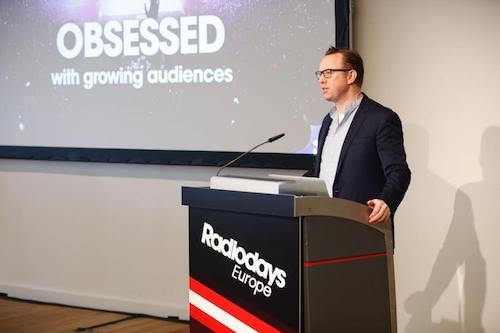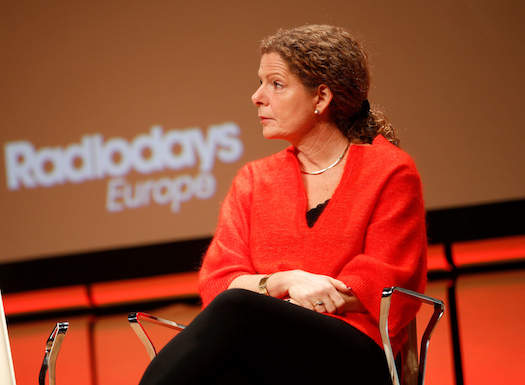A range of European Radio chiefs took to the stage during a RadioDays panel discussion to identify their top priorities in the coming year in their countries and to talk through issues they have in common.
Here are some of the points they raised:
Cilla Benko (pictured), Director General of Swedish Radio.
Linear listening is still important in Sweden, but we can see many changes coming.
The Swedish market is no longer just Swedish. We need to have the right content for the right audience at the right time. In this time of competition it is more than ever about “being chosen” by your audience.
We have many competitors around us who are better at video and text, so if we tried to compete head to head with them we would come second, so we are focusing on quality audio content which is our primary skill.
On social media the public broadcaster is more needed than ever, so we want to be dominant on social media with our audio so that we can reach as many people as possible with correct and factual information.
If we want to stay alive our audience has to understand what we do and why we are a necessity for society. Make content with the audience not for them. Swedish people do believe that Swedish Public Radio is important to Swedish democracy and is the most trustworthy source for news.
There are plenty of new providers when it comes to audio: book publishers and newspapers, spotify and many others. But we have the knowledge, we know audio and we know how to innovate. If we handle this right we will have a golden age of audio.
Steve Parkinson, Group Managing Director Bauer Radio UK.
The British radio market is a vibrant and healthy place to be right now. Radio numbers remain constant, listening has not declined despite there being many more players.
We need to balance the cost of being on all of the new channels, that is a commercial consideration that informs our decision making on where we put our effort.
We have been very successful on Digital Radio, 61% of listening to Bauer stations is via digital radio.
As we celebrate 100 years since radio was launched we are optimistic as new ways of engaging with radio are emerging.
Andrzej Matuszynski, President of the Eurozet Group in Poland.
In the radio industry we are specialists about the delivery of good quality, short format audio content. We must keep this as our priority.
Gustav Lutzhoft, Head of Radio at DR Denmark has mixed feelings about radio in his country.
As of last Friday the Danish government made a decision to effectively cut the national broadcaster by 20% by scrapping the licence fee based funding system.
The Danish national broadcaster will move from the licence fee model towards a tax financed model (as in Australia). The 20% will go back into taxpayers’ pockets, which is good in one way but will eventually leave the public service broadcaster ill equipped to fight the competition coming into the country. It will also open the gates for politicians to have more direct influence on the national broadcaster through funding decisions.
On the positive side, wherever you look you will see headphones. Everyone is listening to something, it is a golden age for radio to step forward to claim our share of audio listening.
In Denmark 9 out of 10 people listen to radio every week. There are record high numbers for our talk radio stations. Smart speakers will be a big opportunity for radio… all in all I feel quite optimistic.

In another session, Stuart Mays, Director of Commercial Strategy for Global, the UK Media and Entertainment Group, outlined the steps which the UK's number one commercial radio group has taken to expand its business.
He described how Global is split into four channels – broadcast, mobile, social and live – and looks to compete with all platforms that take up listeners’ time. Mays gave an overview of the Global brands, including Heart (which has grown from 3 million listeners in 2009, to 9.5 million this year) and Capital.
Mays said that we need to “embrace the experience economy” – as 75% of millennials say they would spend money on experience over a product. He described how Global has involved festivals, branded live events and an event space in their business model in order to embrace this. And he talked about Global’s aim to involve advertisers in these audience experiences in a fully integrated way, at scale.

